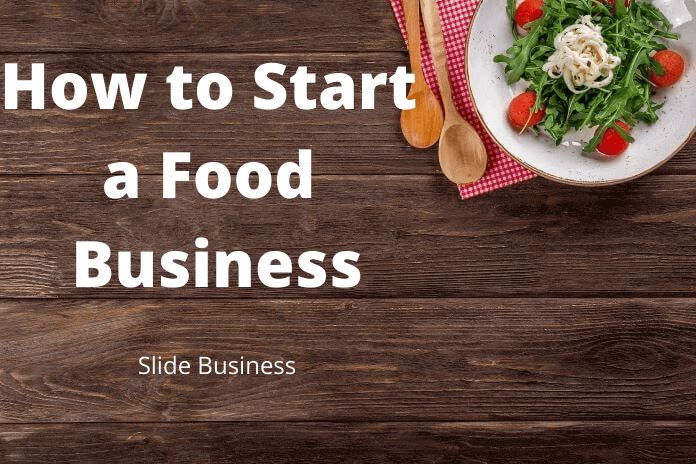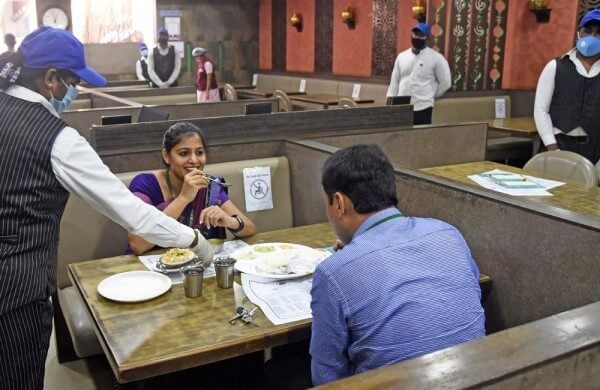Without a doubt, the food business is now on the rise. One of the factors contributing to this quick growth is the appearance of Food Trucks. The food truck business is a new food business venture that taking over more streets in the country day by day.
But if you don’t have the capacity or funds to start a food truck, that doesn’t mean you still can’t benefit from the profitable food industry. Apart from the financial requirement, starting a food truck also often requires you to get lots of permits and licenses before you can start. So instead of going for that, you can start a kitchen food business and still make a good fortune from it.
Here in this post, we have provided you some essential tips that will help you start a food business and becomes successful with it.
RELATED ARTICLE: HOW TO START A FOOD PRODUCTION BUSINESS
Tips for Starting a Food Business
#1: Organize your initial investment
In this type of business, you will need good startup capital to push your business off the ground. Having enough funds separated for the business will allow you to plan and have everything well established even before you open the business.
The amount of money you need, however, depends on the type of food business you want to start. But you will definitely need to spend on some common things like equipment, location, supplies, inventory, staff, and marketing. So use these points to estimate your expenses and come up with a perfect idea of how much you might need to start your food business.
#2: Write a good business plan for the business
A business plan is important for any business that wants to be successful. Let your business plan highlight what advantages and disadvantages are in the business for you. Do a market survey and check to see what your competitors are doing. That will give you an idea of how to beat them in the game.
Your business plan should also include your estimated costs, marketing strategies, your pricing, business location, how many staff will work with you, and what challenges you are likely to face down the road, and how you could overcome them.
#3: Be clear about the concept of your business
This is important when starting a business. Ask yourself what you want to focus on and in which sector you are going to locate.
Take everything into account, because the world of food is extremely extensive. From the organization of the premises to the way in which you will serve the food, everything can vary according to your decision. The concept of your food business is especially relevant to develop your project.
#4: Food is, without a doubt, the center of all your business
That means you will need to investigate and find out about the factors that are at the forefront in gastronomy. Take into consideration that gastronomy is rich and extensive, so don’t limit yourself.
Innovate, merge, and create dishes that your customers can’t find elsewhere. Recent studies affirm that vegetarian and organic food, as well as fusion dishes and craft beers, are having great success around the world.
You should also plan how you will prepare the food, what techniques you will use, and what will be your main products. In general, it is indicated that you look for an area in which you specialize and from there, you can explore new horizons.
To determine the cost of your food, consider how much it costs you to make it and the price of similar dishes in the same area.
RELATED ARTICLE: HOW TO START A STREET FOOD BUSINESS
#5: Choose a good location for your food business
The location of your business is a fundamental factor for its operation. Positioning yourself in a strategic location will allow your food to be sold more easily. To do this, ask yourself:
- Is it a busy place? A crowded place increases the chances that more people will consume your products.
- Is it easily accessible?
- How much competition is there around me? Taking the competition into account is important since if there are others near your business that offer the same type of food, it is likely that the clientele will be divided.
- Is there space for your customers to park their cars?
- Will you buy or rent the place?
#6: Choose the type of food you will sell
Choosing the type of food you will sell will determine the success of your business. Do not forget that the client is the most important, because everything will depend on their tastes.
Likewise, offering an innovative proposal is important to achieve an impact on your clients. In the same way, having a varied menu for all tastes will attract a greater variety of customers.
Think of large groups of people, even families, where each has a particular interest and offer them numerous options that suit each of them.
#7: First impressions speak for themselves
A good presentation, accompanied by an eye-catching design, will attract new customers. The appearance of your food business will tell a lot about your products. Work with a range of defined colors and have your workspace well organized.
Also, clear the customer area and make sure there is enough space. You can use visual resources, even ideas for a good website, to develop the presentation of your food business.
#8: A clean and neat space is very important
Taking care of the hygiene of your business should go from the presentation of your employees to the cleaning of the bathrooms.
Therefore, equip your business with products such as sanitizing gel, antibacterial, soap, etc., and clean it very well. Also, wash your food very well, clean the tables periodically, as well as the kitchen and bathrooms.
As a result, you will have an impeccable appearance, which will prevent you from having any problems with the authorities in charge of health. That in turn, will also give your customers more confidence to eat at your place.
If you want to learn more about how to create a safe and clean environment for your food business or meal delivery service, check out Clean Creation’s blog.
#9: Complies with the relevant rules and regulations
Although this aspect varies by country, having the legal aspects in order is extremely important. This will keep you away from problems and will give your business seriousness, which will give you stability.
#10: Marketing your food business is just as important as everything else
To achieve this, organizing your sales and having a good promotion will be very helpful for the growth of your business. Having a good logo, a suitable website, and being on all social networks will increase the visibility of your company.
Therefore, you should rely on resources such as contests, brochures, advertisements, radio ads, or on social networks, among many others, to get noticed.
The food industry is highly competitive and full of great companies, so you should look for resources to help you excel. Therefore, the use of marketing and advertising strategies is essential to earn a place within this sector.
For example:
- Create products for children and include them in food promotions.
- Do you use market segmentation to identify the key customers that will come eat at your place? You can separate them by age, by taste, by economic status, etc., and from there, work according to the interests of each of the groups, focusing on the one with the greatest attendance.
- Reward your loyal customers. A very common and effective strategy is to offer free services, incentives, discounts, or prizes in exchange for a number of purchases or visits. So, focus on keeping your existing customers. That will encourage them to bring in new customers and help you grow your food business.
- Let your customers have a say. It would be good if you create suggestion boxes, questionnaires, surveys where your consumers comment on your business.
RELATED ARTICLE: COMPLETE PRACTICAL GUIDE TO START A FROZEN FOOD BUSINESS








